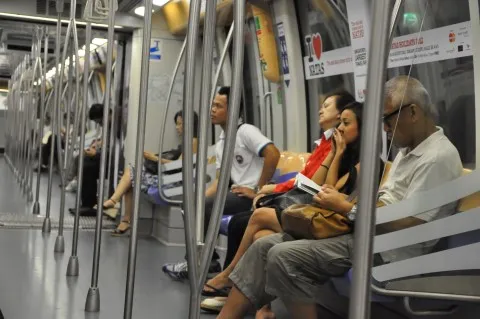
Hong Kong's railway expansion plagued with land site woes
Landbank will deplete in a decade.
Based on estimates, MTR’s existing landbank in HK will deplete within 10 years, and that while the HK railway network should continue to expand, availability of land sites bundled with new railways is likely to become increasingly scarce.
According to a research note from Nomura, two important implications that can be drawn from here are that MTR will become more like a pure railway operator with railway and station-commercial businesses contributing to c.80% of total EBITDA, and rental income comprising the rest.
Further, it is believed that earnings volatility will be greatly reduced without lumpy property development profits.
Here’s more from Nomura:
Contributions from China and overseas should make a more meaningful impact. Currently MTR operates only 8 projects outside of HK, which contributed a mere 5% of total 2013 EBITDA. We see upside risk here as:
1) MTR is likely to accelerate its pace of China and overseas investments, considering the shortfall of relying on HK exposure alone and the abundance of new urban railway development in China and
2) MTR should be able to replicate its rail-plus-property model in China, with the company making its first breakthrough in Chongqing recently.
MTR’s LT fundamental transition should be positive for its valuations in 2 ways:
1) NAV discount – MTR’s share should trade at a narrower NAV discount if the property exposure diminishes over time and
2) dividends – our FY15F dividend yield for MTR is already matching that for HK utilities.
There could be further upside in the LT as capex cycle should peak by 2015F and as recurring profits become more predictable (giving MTR more leeway to pay out higher DPS).








![Cross Domain [Manu + SBR + ABF + ABR + FMCG + HBR + ]](https://cmg-qa.s3.ap-southeast-1.amazonaws.com/s3fs-public/styles/exclusive_featured_article/public/2025-01/earth-3537401_1920_4.jpg.webp?itok=WaRpTJwE)









 Advertise
Advertise


